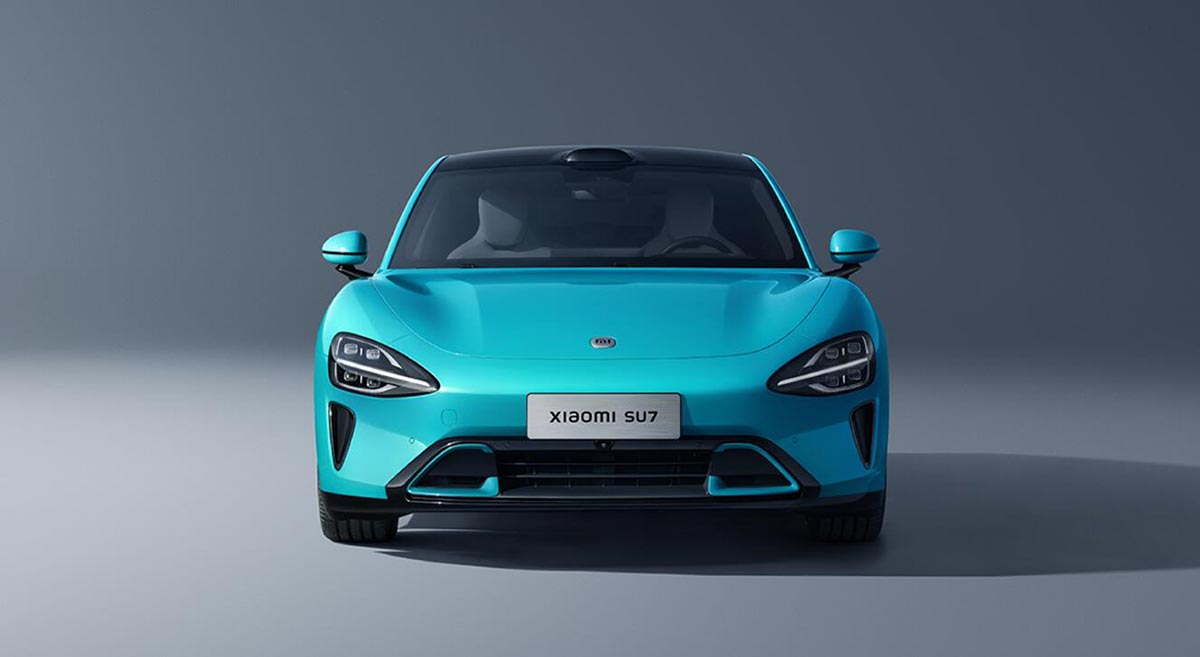[ad_1]

Chinese smartphone giant Xiaomi seems to have hit the ball out of the park with the launch of its debut EV, the SU7, last week. The launch has pushed its market value up by $4 million, with the company now nearing valuations higher than GM and Ford.
Reuters reports this morning that shares of Xiaomi surged as much as 16% – but still, throwing cold water on the good news, analysts predict that the company still stands to lose a ton of money on each car, equally around $10,000 per car this year.
Xiaomi’s stock reached its highest since January 2022. At the day’s highest, the company had a valuation of $55 billion at a share price of HK$17.34, which nudges it higher than legacy automakers General Motors (valued at $52 billion) and Ford (valued at $53 billion).
Last Thursday, Xiaomi opened up orders for its SU7 sedan – a targeted rival to Tesla’s Model 3 – after releasing competitive prices starting at $29,870, priced about $4,000 less than the Model 3.
Friday, the company said pre-orders reached nearly 90,000 in the first 24 hours. Yesterday Xiaomi’s car app flagged would-be buyers that delivery time for the new SU7 and SU7 Pro could take 18 to 21 weeks. The most expensive model, the AWD SU7 Max (priced at 299,900 yuan/$41,500) would take 27 to 30 weeks.
Still, despite its early signs of success, Xiaomi says that it expects to take a financial hit on the new SU7, with analysts saying that the loss could be substantial.
Citi Research analysts didn’t mince words: “We maintain our cautious view that ultimately everyone could be a loser” within the 200,000 to 300,000 yuan ($27,649.90 to $41,474.85) segment, reports Reuters.
Xiaomi predicts a volume of 60,000 units this year, which Citi estimates could bring in a net loss of 4.1 billion yuan ($566.82 million). On average, that’s around 68,000 yuan ($9,400) per car, the report said.
Apparently, Xiaomi is also asking suppliers to raise the new EVs monthly production capacity to 10,000 units, “up from 3,000 in March and 6,000 in May,” as reported by Chinese news outlet Yicai and cited by Reuters.
Electrek’s Take
Xiaomi is an interesting case here, for a few reasons. Analysts predict the company will lose money on its lower-priced SU7, but the smartphone maker has a tidy cash reserve of $15 billion to help it weather the price war happening in China. Even Tesla, which has been slashing prices for months, has seen a dip in market share in January, despite being one of the most popular brands in China.
Also, the company has tremendous brand appeal to the Chinese consumer, who are already familiar with its products and user interfaces. In addition to an alluring price point, the SU7 is a connected car that syncs with other devices. Compared to other EV makers, Xiaomi, too, has an edge on software and a jumpstart on autonomous driving, which it has been testing on roads for a few years.
Xiaomi, which was once blacklisted in the US by Trump for its alleged ties to China’s military, is the world’s third-largest smartphone maker after Apple and Samsung and also produces a slew of electronics in addition to e-bikes and scooters. Of course, its products are unavailable in the US, but its biggest markets outside of China are Europe and India.
Still, Xiaomi is jumping into a fiercely dense and competitive market that is already flooded with hundreds of new models from dozens of brands in China, topped by powerhouse BYD. But these early signs of success are sure to inspire investors, so it’s looking good for Xiaomi so far. Plus the company is likely looking to make up for any losses with future models and higher-end variants down the road.
FTC: We use income earning auto affiliate links. More.
[ad_2]
Source link

